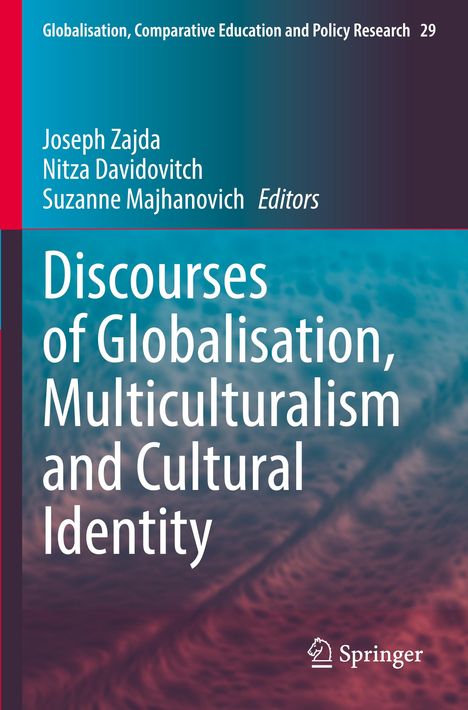Discourses of Globalisation, Multiculturalism and Cultural Identity
Discourses of Globalisation, Multiculturalism and Cultural Identity
Buch
- Herausgeber: Joseph Zajda, Suzanne Majhanovich, Nitza Davidovitch
lieferbar innerhalb 2-3 Wochen
(soweit verfügbar beim Lieferanten)
(soweit verfügbar beim Lieferanten)
EUR 142,37*
Verlängerter Rückgabezeitraum bis 31. Januar 2025
Alle zur Rückgabe berechtigten Produkte, die zwischen dem 1. bis 31. Dezember 2024 gekauft wurden, können bis zum 31. Januar 2025 zurückgegeben werden.
- Springer International Publishing, 01/2024
- Einband: Kartoniert / Broschiert, Paperback
- Sprache: Englisch
- ISBN-13: 9783030926106
- Bestellnummer: 11724488
- Umfang: 216 Seiten
- Nummer der Auflage: 24001
- Auflage: 1st ed. 2022
- Gewicht: 335 g
- Maße: 235 x 155 mm
- Stärke: 12 mm
- Erscheinungstermin: 3.1.2024
- Serie: Globalisation, Comparative Education and Policy Research - Band 29
Achtung: Artikel ist nicht in deutscher Sprache!
Weitere Ausgaben von Discourses of Globalisation, Multiculturalism and Cultural Identity
Klappentext
This book examines dominant discourses in multiculturalism and cultural identity globally. It critiques dominant discourses and debates pertaining to multiculturalism and cultural identity, set against the current backdrop of growing social stratification and unequal access to quality education. It addresses current discourses concerning globalisation, ideologies and the state, as well as approaches to constructing national, ethnic and religious identities in the global culture. It explores the ambivalent and problematic connections between the state, globalisation, and the construction of cultural identity.The book also explores conceptual frameworks and methodological approaches applicable to research on the state, globalisation, multiculturalism and identity politics. Drawing on diverse paradigms, ranging from critical theory to globalisation, the book, by focusing on globalisation, ideology and cultural identity, critically examines recentresearch dealing with cultural diversity and its impact of identity politics.
Given the need for a multiple perspective approach, the authors, who have diverse backgrounds and hail from different countries and regions, offer a wealth of insights, contributing to a more holistic understanding of the nexus between multiculturalism and national identity. With contributions from key scholars worldwide, the book should be required reading for a broad spectrum of users, including policy-makers, academics, graduate students, education policy researchers, administrators, and practitioners.


